Bonnie Tsui | Apiece Apart Woman
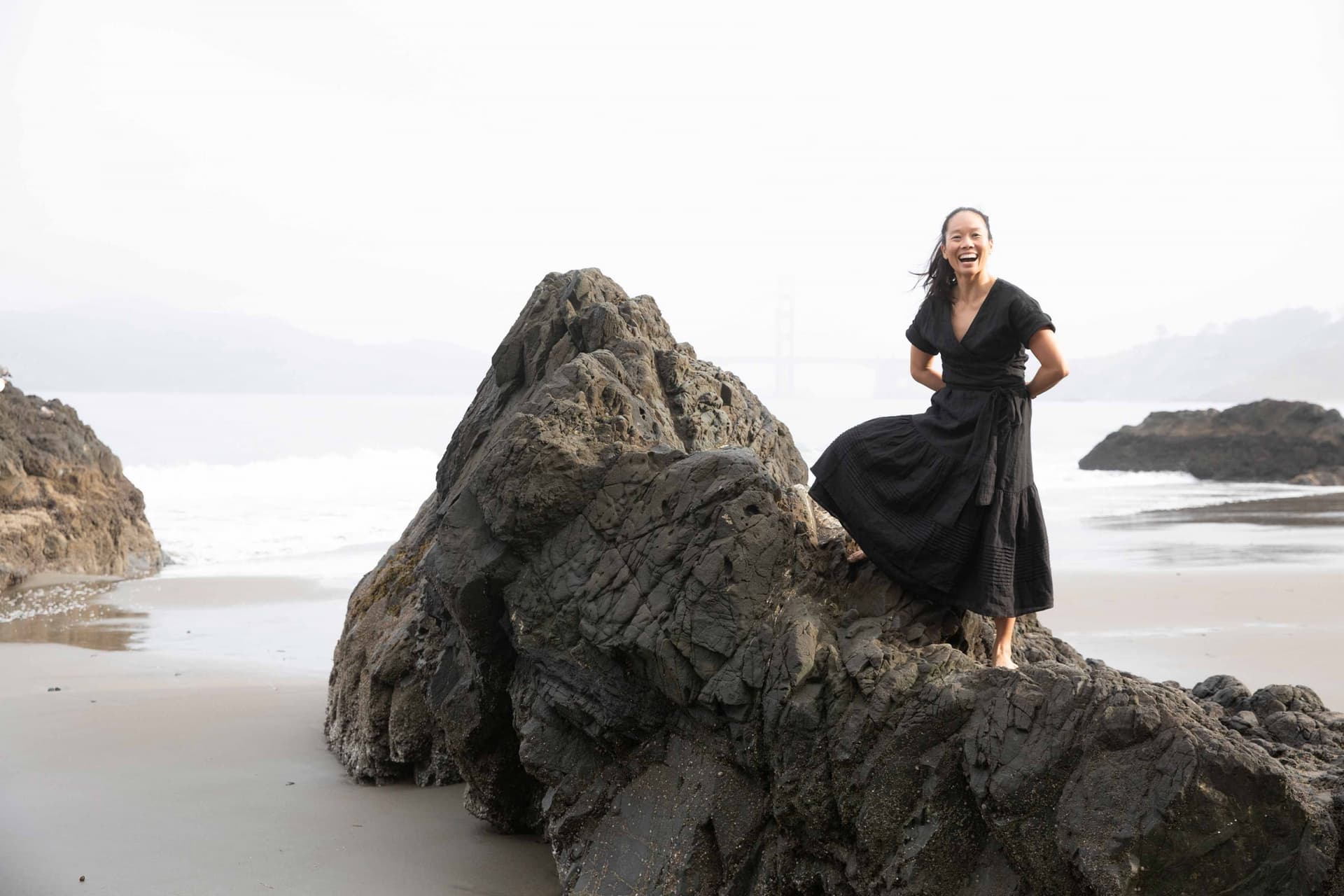
We couldn’t have met Bonnie Tsui—writer, journalist, lifelong swimmer, and surfer—at a more perfect moment. A frequent contributor to the New York Times, and the author of two books, all of Bonnie’s work weaves her love of the natural world with her passion for rich community, culture, and the human experience.
In her newest book, Why We Swim (selected as one of Time’s books of the year), she explores people’s long-rooted love for the ocean despite its mysteries and danger. The metaphor is hardly lost on us: After a year of grappling with unknown dangers and a precarious future, we’ve spent this time leaning heavily on rituals that get us out of our head. And to Bonnie, swimming is one of those things — viewing water as a powerful symbol, revealing the fragile balance between safety and uncertainty.
We met up with Bonnie in the Bay Area where she lives with her husband and two sons. On a cloudy day at the beach, we talked about the community she’s found through swimming, which books she’s been loving, and lessons she’s learned from a life spent near the water.
Photos by Ericka McConnell
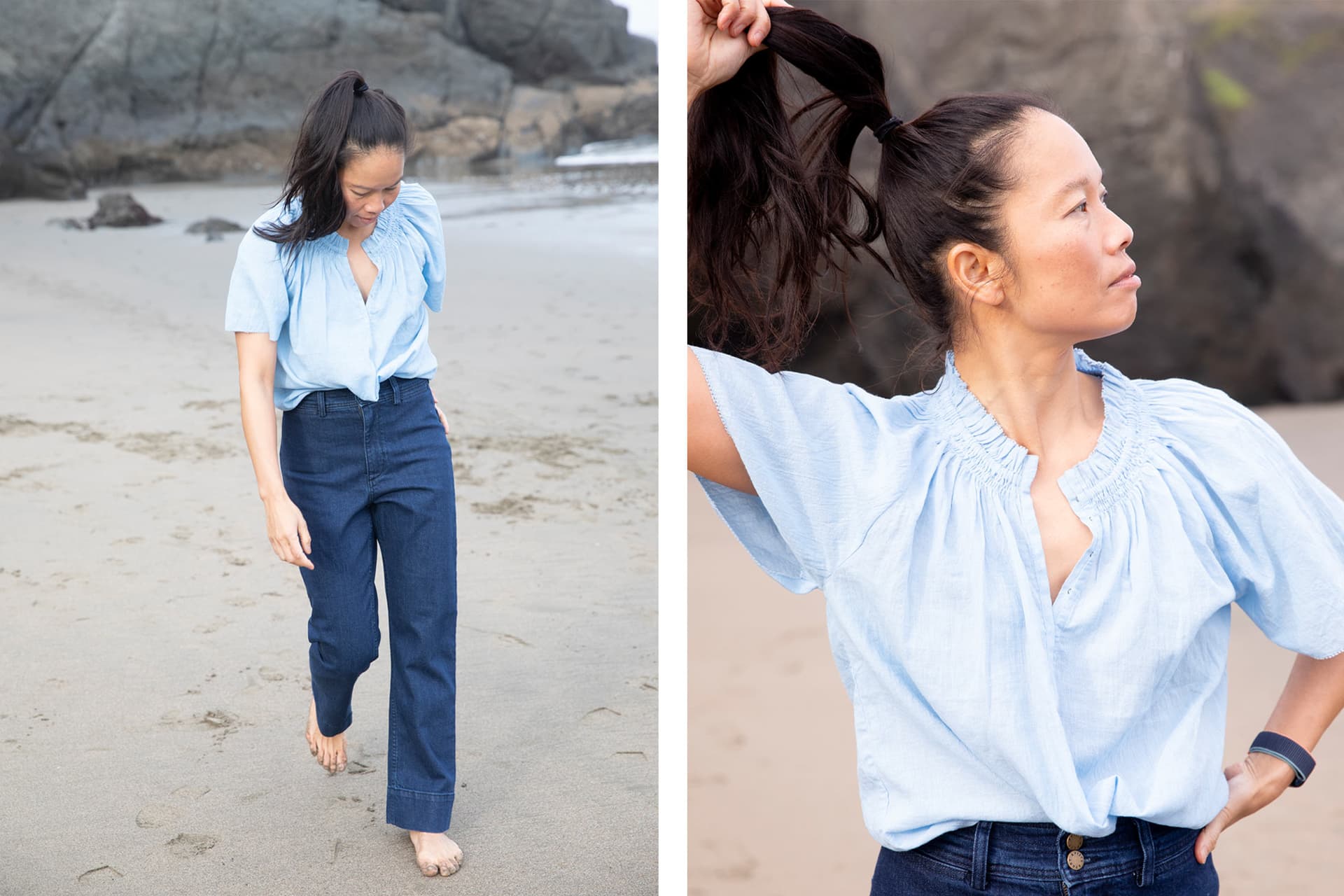
When did you fall in love with swimming and the water?
My parents met in a swimming pool in Hong Kong—it’s our family origin story. My brother and I swam from a young age. We grew up in New York going to Jones Beach in the summers and swimming with a year-round swim club. We became lifeguards like our dad was. I have such vivid memories of feeling at home in the water at every stage of life—getting to know it like you would a family member, in all of its moods. As I’ve gotten older, it’s become less about competition and more about the community and finding flow and meditative space, whether it’s in a pool or open water. Water just feels good.
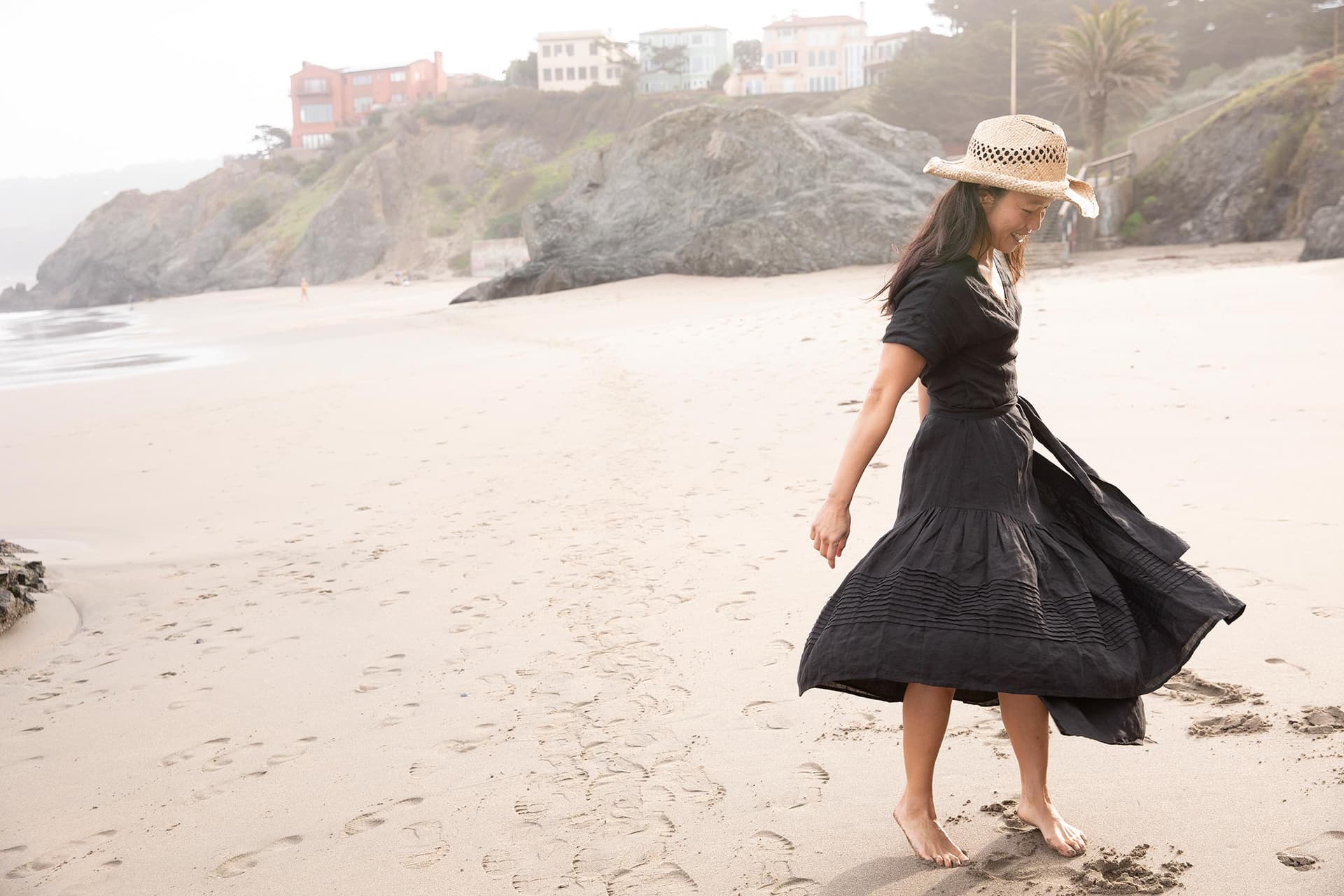
Tell us about a time in your life when you had to dramatically change course. What did you learn about yourself?
When I was in my mid-20s, I got laid off from what I thought was my dream job as an editor at Travel + Leisure magazine. It was 2003, a really difficult time in post-9/11 New York, especially for travel and publishing. I was devastated. How was I going to pay my student loans? I needed a new full-time job, stat. My boyfriend, now my husband, said, “Hang on. Remember that you’ve been wanting to do more freelance writing. Why not try it now? Also… should we move to California?”
I learned how to relinquish control, to be OK with uncertainty, to be open to letting in the unknown. Eighteen years later, he loves reminding me that being laid off was the best thing that ever happened to my professional life.
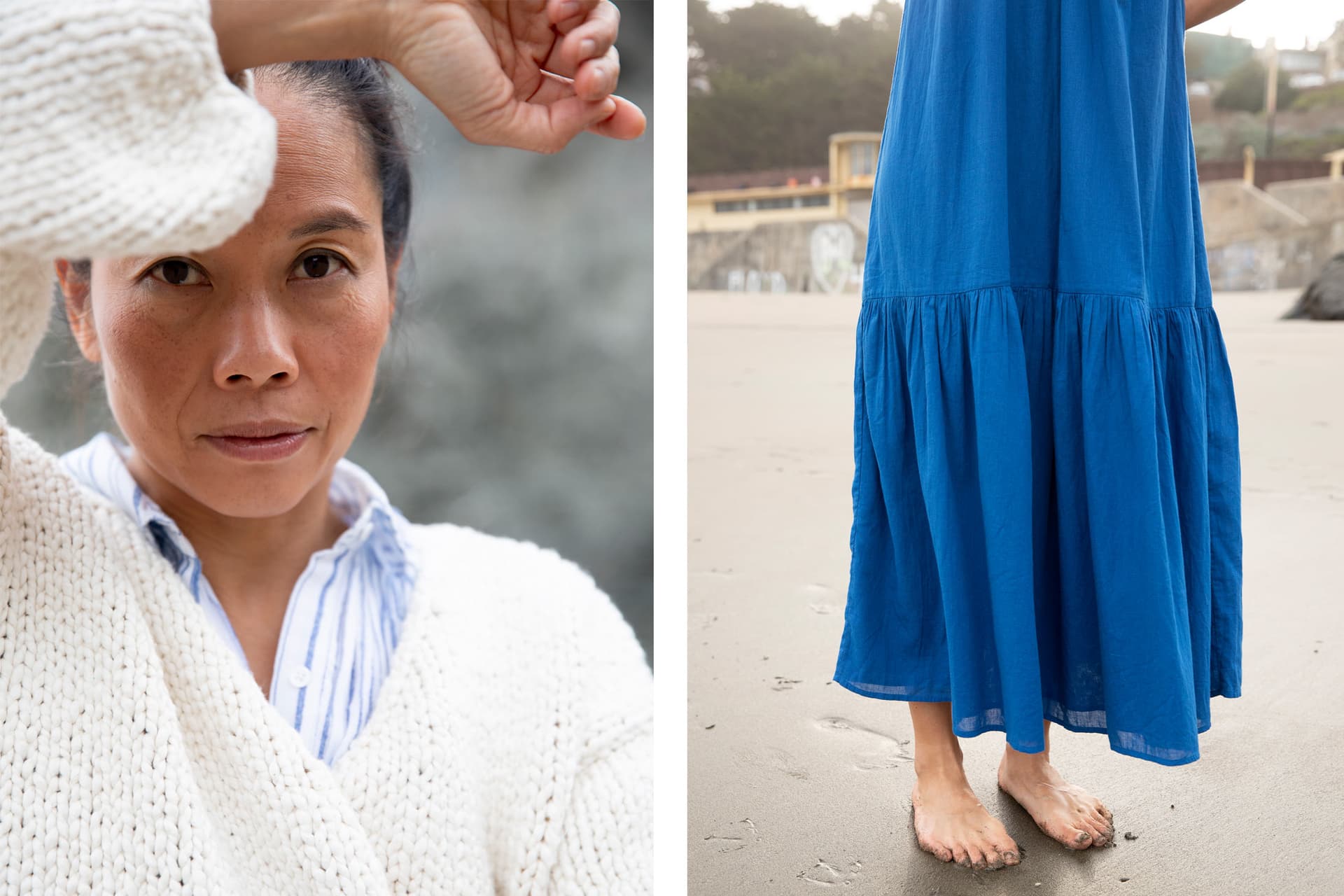
You talk often about swimming as a kind of bravery or confrontation of fear. Can you elaborate on this?
We humans have to be taught how to swim; we don’t know how to do it from birth. Always there is this porousness between states: life and death, swimming and drowning. But water is so alluring and appealing. We’re drawn to it—whether it’s oceans, lakes, rivers, waterfalls, pools—and need it to survive. We’ve figured out how to conduct ourselves in water safely, with joy and wonder. But there’s this dark edge of possibility built into immersion. It keeps us aware and acutely present. That’s a valuable daily lesson.
When do you feel most like yourself? When do you feel off-center, and what helps you to feel centered again?
In the ocean at first light for a surf, or swimming alongside a friend at the pool or in San Francisco Bay. I feel twitchy and unsettled if I haven’t had that tonic—I’m definitely not my best self—so I try as best I can to get a morning dose.
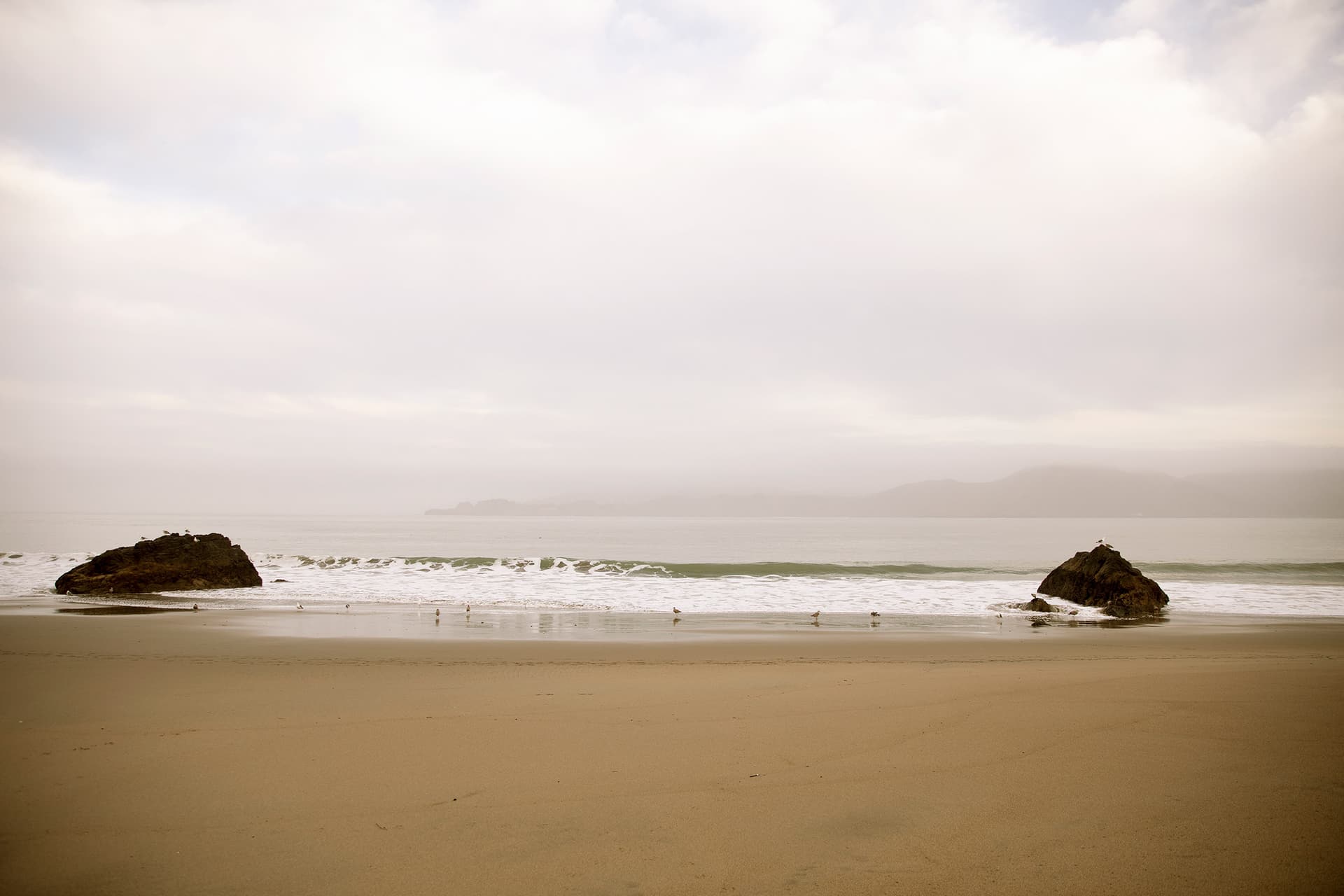
What book have you read recently that has changed the way you think about something?
I’ve been reading and re-reading bits of Ross Gay’s The Book of Delights over these last months. I’ve had the great pleasure of talking with Ross about it—he himself calls it a strange book, little lyric essays written over the course of a year. He notes down the ordinary wonders often overlooked in our days. It’s so full of his clear-eyed humor and insight. Reading him reminds me to be generous and attentive to the world. It’s a book that makes me want to be a better person.
Thinking over the past year, can you share any epiphanies you’ve had, large or small?
This year has been so much about slowing down, noticing, appreciating. We miss so much—we long to be with the people we love, to hold them close; we wish for novelty, to be somewhere, (anywhere!) else—but I have also been thinking a lot about what a gift it is to have these extra hours with my husband and two sons. I don’t miss the schlep and the rush and the “hurry-up-hurry-up-hurry-up”-ness of The Great Before.
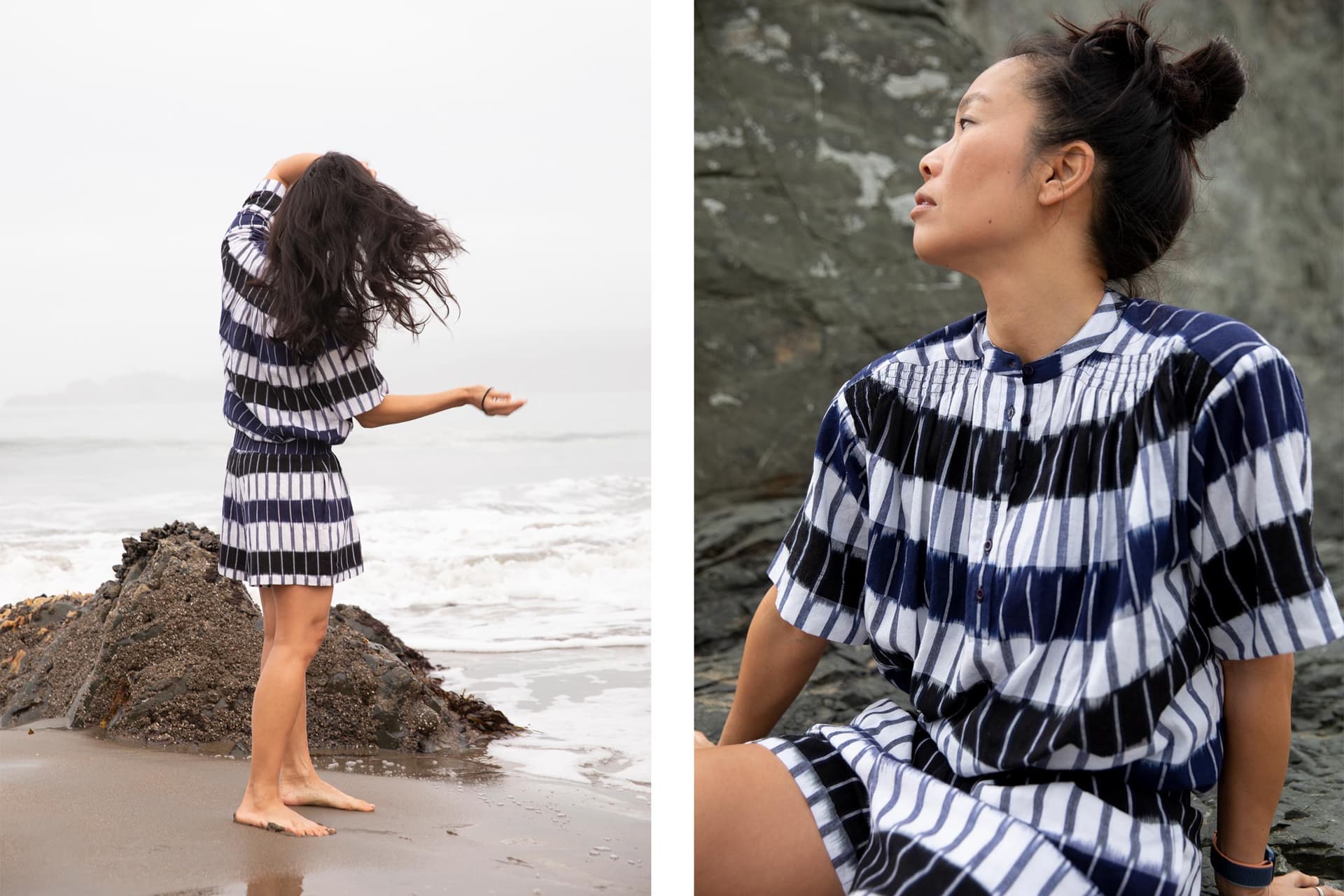
If you could go back a decade, what would you tell your then-self?
Hello to the pregnant, sleepless, anxiety-ridden me who is about to have a child! This decision isn’t going to torpedo your writing or your life. It will make it all more complicated, and sometimes harder, but also richer, more meaningful. It will change your life—and, strangely enough, it will also distill your being, making you ever more you.
Can you share a recipe or meal that you’ve been loving lately?
A meal that I can now make with my eyes closed: steelhead trout poached with ginger, scallion, and soy sauce, served with oven-roasted broccoli that’s rubbed with olive oil, salt, and pepper. If I get the broccoli in the oven at the same time I’m cooking the fish, I can have a delicious dinner on the table in 12 minutes that everyone is happy to eat.
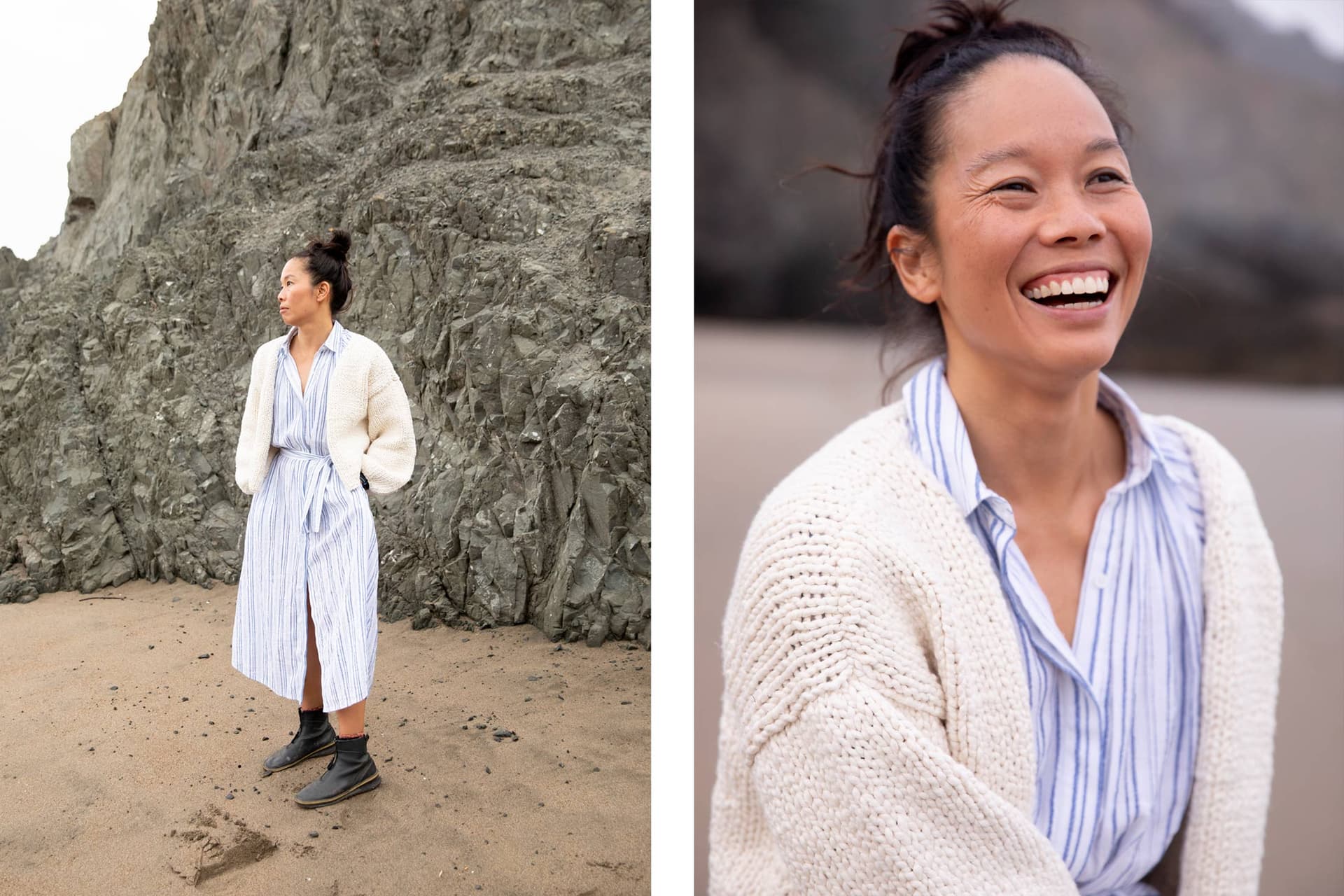
Can you share a handful of hyper-specific objects you feel a serious attachment to right now?
This little LEGO figure my younger son gave me: “Joker on Vacation.” It’s the Joker from Batman, wearing a Hawaiian shirt and a duck pool floatie and holding up a camera. I love Joker on Vacation so much—he hangs out on my desk. Every time I see him I laugh.
I love the blue and white Royal Copenhagen porcelain and silicone coffee mug my husband bought in Denmark. I use it most mornings. And my Locals flip-flops that have a hole in the right heel from the way I walk. It’s almost time to replace them again.
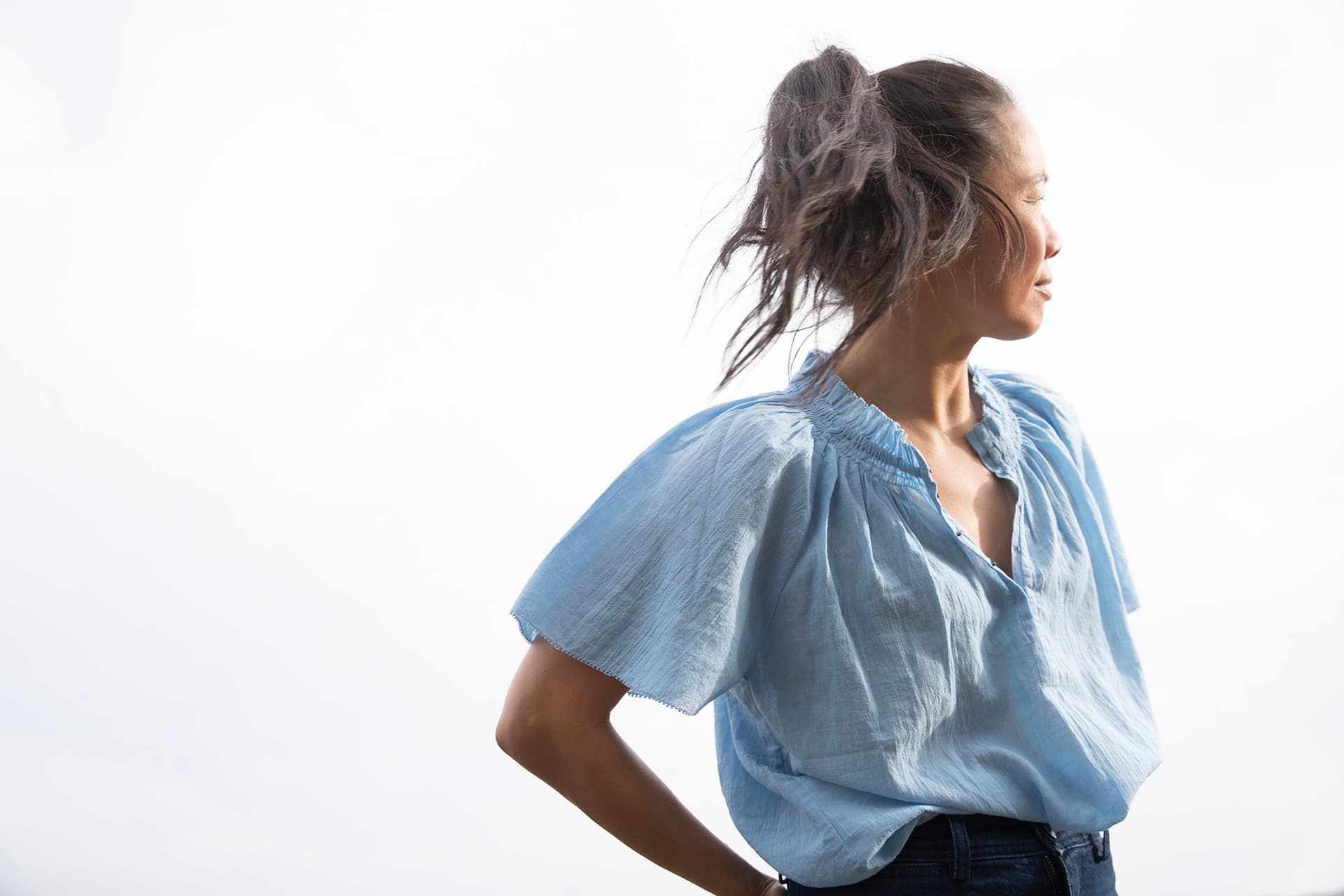
What is a recent conversation with a friend that stuck with you?
I was talking with my friend Rachel about this current moment, which has a strange duality. It’s a phase that sees us veering deeper into introverted hermit territory—which, of course, is not entirely unpleasant—at the same time that we are missing connecting with the world in all of its wild energy and messy glory. Take restaurants. “Indoor dining? No, thank you.” And also: “Remember restaurants? How wonderful they were!” The versions of ourselves that come out of this long pandemic period are going to be so fascinating to observe. At the same time that I’m terrified of who those people are going to be, I can’t wait to meet them.